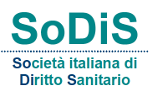Il contributo analizza la questione del riparto di giurisdizione in materia di diritti fondamentali – con specifico riguardo al diritto alla salute – prendendo le mosse dall’ordinanza n. 5668 del 23 febbraio 2023, con cui le Sezioni Unite della Corte di Cassazione hanno affermato la giurisdizione ordinaria in un giudizio diretto ad accertare la domanda di risarcimento del danno alla salute da inquinamento atmosferico nei confronti della pubblica amministrazione. Pur richiamando la tesi secondo cui il diritto alla salute assume sempre natura di diritto soggettivo non degradabile ad interesse legittimo (cd. teoria dei diritti fondamentali “indegradabili”), a fondamento della decisione emerge l’assenza di esercizio del potere amministrativo e di giurisdizione esclusiva del g.a. Sulla base dell’ordinanza in commento, il presente contributo intende esaminare l’evoluzione giurisprudenziale e dottrinale in tema di diritto alla salute valutandone le implicazioni sul sistema di riparto delle giurisdizioni e sul tipo di sindacato esercitabile sull’attività amministrativa, nonché le interazioni con la tutela dell’ambiente (con particolare riguardo al “diritto ad un ambiente salubre”) alla luce del principio di precauzione.
The contribution analyses the profiles of jurisdiction allocation in claims concerning fundamental rights, with specific regard to the right to health and the consequent compensation-claim against the public administration for health damage caused by atmospheric pollution. The decision of the Italian Supreme Court, No. 5668 of February the 23rd 2023, affirmed the ordinary jurisdiction not on basis of the so-called “non-degradable” fundamental rights-theory, according to which the protection of the fundamental right to health always has the nature of a subjective right, which cannot be reduced to a “legitimate interest”. The decision relies instead on the analysis aimed at excluding the exercise of administrative power and the absence of exclusive jurisdiction. Within this context, this contribution aims at examining the jurisprudential evolution on the right to health by assessing, on the one hand, its implications on the system of jurisdictional allocation and on the type of judicial review-power that can be exercised on administrative activity; and, on the other hand, its interactions with environmental protection (with particular regard to the “right to healthy environment”) in light of the precautionary principle.


